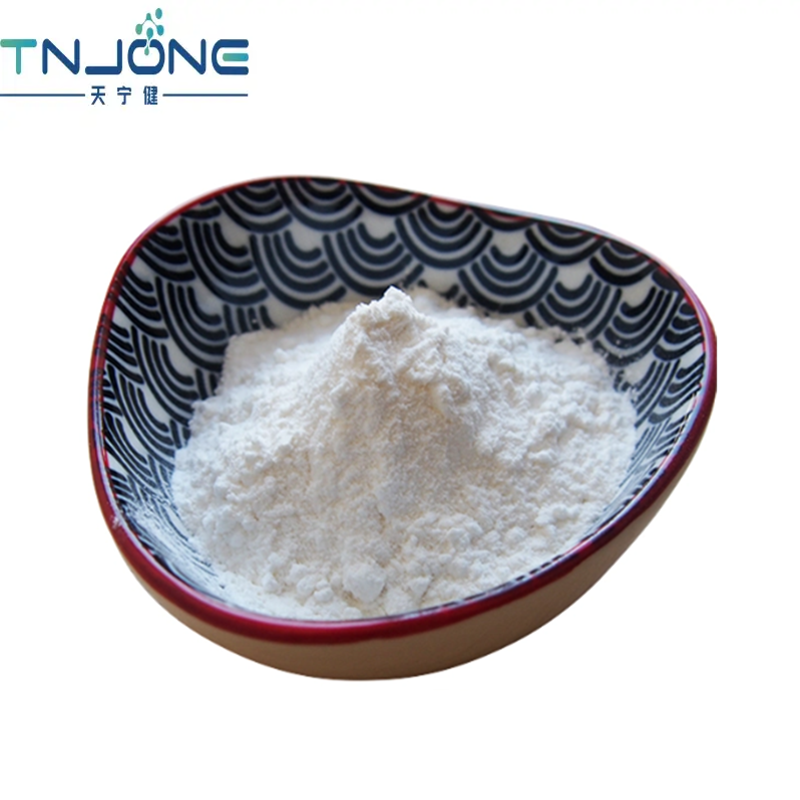-
Categories
-
Pharmaceutical Intermediates
-
Active Pharmaceutical Ingredients
-
Food Additives
- Industrial Coatings
- Agrochemicals
- Dyes and Pigments
- Surfactant
- Flavors and Fragrances
- Chemical Reagents
- Catalyst and Auxiliary
- Natural Products
- Inorganic Chemistry
-
Organic Chemistry
-
Biochemical Engineering
- Analytical Chemistry
-
Cosmetic Ingredient
- Water Treatment Chemical
-
Pharmaceutical Intermediates
Promotion
ECHEMI Mall
Wholesale
Weekly Price
Exhibition
News
-
Trade Service
Original title: drink milk, the right amount of health
nutrient-rich
milk
, if you drink too much, but will be extremely counterproductive. In a recent study published in
the
British
Medical
Journal
(BMJ),
Seinding
debt products
can have a significant impact on health, especially when whole milk intake is associated with a high risk of total mortality, cardiovascular mortality and cancer mortality.
the news, many milk-loving members of the public panicked. In fact, you don't have to worry about it. The study points out that 4.2 servings of dairy products per day can have a significant impact on health. The "one serving" here is a 240ml glass of skimmed/low-fat milk/full-fat milk; one tablespoon (6g) cream; 1/2 cup (120ml) ice cream/ice cream/whey cheese; and 30ml cream/cheese. In other words, drinking 1.008 litres of milk a day, eating 25.2g of cream, eating 2.1 cups (540ml) of ice cream/ice cream/whey cheese, and eating 126ml of cream/milk will only affect health, which is obviously difficult to achieve in China.
previously, nutrition and health monitoring results for Chinese residents from 2010 to 2012 showed that the average daily intake of milk and its products per person in urban and rural areas was 24.7 grams, far less than one-tenth of the recommended amount (1.5 servings).
Ma Guansheng, head of the Department of Nutrition and Food Hygiene at Peking University School of Public Health, told China Science Daily that although excessive milk and dairy products can have adverse effects on health, it is far from excessive consumption based on China's current consumption of milk and dairy products. On the contrary, china's residents' consumption of dairy products is still very low, but also need to increase the intake of milk and dairy products.
The study, which included
168,153 women and 49,602 men, was followed for 32 years, according to the BMJ. During this period, 51,438 subjects died. Of these, 12,143 died of cardiovascular disease and 15,120 died of cancer.
Scientists carefully integrated, analyzed and corrected the trial data and found that consumption of more than 1.5 dairy products per day is good for health, more than 2.8 servings of dairy products consumption may be somewhat detrimental to health, and reaching 4.2 servings of dairy consumption per day can significantly affect physical health, and the risk of cardiovascular death and cancer death are increased.
, no matter what food, overeating to a certain extent can have a negative effect, as can dairy products.
milk can be divided into full-fat and skimmed milk by degree of skimming, and semi-skimmed milk (low-fat milk) and whole-skimmed milk (skimmed milk). Ma Guansheng said that milk is a good source of calcium, moderate intake of milk can play a role in preventing osteoporosis, but if long-term excessive consumption of milk, especially full-fat milk, excess intake of protein and cholesterol from milk will affect the retention of calcium in the body, and will reduce bone deposits, but easily lead to osteoporosis.
There are reports that countries with high rates of osteoporosis are those with high rates of milk and dairy products, such as the United States, Sweden and Finland, while Asian countries with low consumption of dairy products have lower rates of osteoporosis. A study by the Harvard School of Public Health also found that consuming large amounts of milk in ad age did not reduce the risk of hip fractures in old age.
also shown that excessive milk intake in men increases the risk of prostate cancer. An 11-year follow-up study of more than 20,000 male physicians in Boston found that men who ate more than 2.5 servings of dairy products a day (equivalent to 600 milliliters of milk) had a 34 percent increased risk of prostate cancer compared to men who ate less than 0.5 servings (120 milliliters) of dairy products. In a new study by Harvard Medical School in the United States, patients diagnosed with prostate cancer had an increased risk of dying from prostate cancer by drinking three servings of high-fat milk a day than from drinking less than one serving of high-fat milk a day.
Fan Zhihong, an associate professor in the Department of Nutrition and Food Safety at the School of Food Science of China Agricultural University, also said that in dairy products, full-fat milk is the most negative, with an 11% increase in the total risk of death for every half cup of milk added, a 9% increase in the risk of cardiovascular death, and an 11% increase in the overall risk of cancer death. High intake increases the risk of death from lung, ovarian and prostate cancers.
researchers believe that skimmed milk and full-fat milk have different effects, perhaps when full-fat milk intake, but also intake of excessive saturated fatty acids, affecting blood lipids, promote atherosclerosis. But Fan Zhihong believes that there is also a possibility that knowing that too many saturated fatty acids is not good, but also drinking a lot of whole milk, indicating that some people eat too wayatively and do not attach importance to healthy living.
scientific choice rational intake
today's market milk and dairy products a wide variety, according to the source can be divided into milk, sheep's milk, horse milk, etc. , of which milk production and consumption is the largest. Fresh milk can be processed and processed into a variety of dairy products, according to China's food industry standard system, can be divided into liquid milk, yogurt, milk powder, cheese and condensed milk.
, Ma Guansheng Science Road, milk and dairy products are rich in nutrients, suitable composition ratio, easy to digest and absorb, high nutritional value, can provide high-quality protein, vitamin A, vitamin B2 and calcium. The research shows that increasing milk intake is beneficial to human bone health and promotes the growth and development of children. The Dietary Guidelines for Chinese Residents (2016) recommend increasing the intake of dairy products by 200 to 300 grams or a significant amount of dairy products per day.
, Ma Guansheng pointed out that full-fat milk, low-fat milk, skimmed milk protein, carbohydrate content is similar, but the fat content is different. Full-fat milk is about twice as fat as low-fat milk, and skimmed milk contains almost no fat. Usually the protein of the three kinds of milk is not less than 2.9%, the fat content of whole milk is not less than 3.1%, the fat content of low-fat milk is 1% to 2%, and the fat content of skimmed milk is about 0.5%.
it is important to note that in the process of degreasing, in addition to reducing the fat content of milk, dissolved in fat health-beneficial fat-soluble vitamins, such as vitamins A, D, E, etc., are also removed. To this end, Mr. Ma suggests that healthy adults and children can choose full-fat milk. Because full-fat milk retains the most nutrients in milk, rich in fat-soluble vitamins A, D, E, K, etc., and contains natural calcium, which is beneficial to the absorption of calcium.
, that doesn't mean low-fat milk isn't good. Studies have shown that increasing intake of low-fat milk and its products can reduce the risk of breast cancer. Mr Ma said people with high blood lipids and low-fat milk who needed to control their weight should not consume too much fat, especially saturated fatty acids. In addition, skimmed milk helps control calories.
not only that, but Ma also recommends that people who are lactose insulable can choose yogurt or lactose-free milk. Now on the market, the milk is low lactose milk, milk is added lactase, can be more than 90% of the milk lactose into easy to absorb glucose and semi-lactose. Middle-aged and older people can choose vitamin AD milk in moderation, because AD-enhanced milk is one of the cheapest and most convenient sources of vitamin A and D.
And for different age groups to consume dairy products, Ma Guansheng also listed the scope of scientific guidance - 0 to 6 months old infants should adhere to exclusive breastfeeding (average), can not breastfeed or breast milk insufficient infants and young children, should choose formula as a supplement to breast milk, 7 to 24 months old Infants should continue to breastfeed and continue to be 2 years of age or older, and adequate calcium intake in young children (2 to 6 years of age) is important for increasing bone mass accumulation, promoting bone growth and development, and preventing osteoporosis in adults, and it is recommended to drink 300 to 400 ml of milk or a considerable amount of dairy products per day. In order to meet the needs of bone growth, school-age children between the ages of 7 and 18 should ensure daily intake of 300 ml of milk and dairy products or a considerable amount of dairy products;
.







